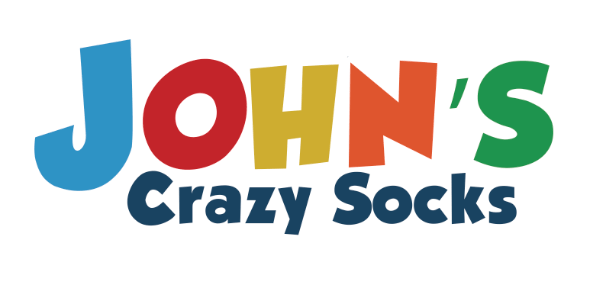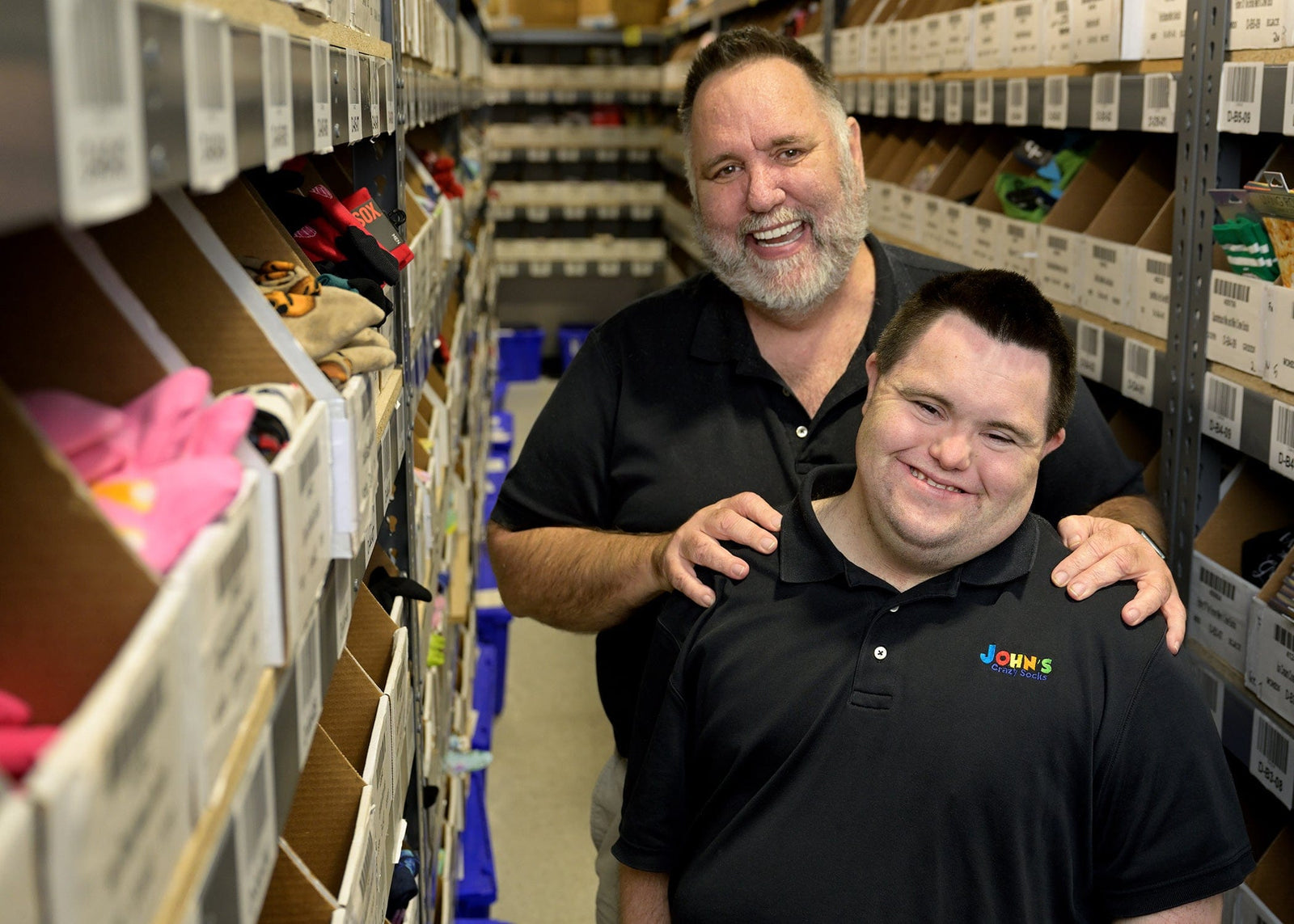At John’s Crazy Socks, more than half our colleagues have a differing ability and many of them have autism spectrum disorder (ASD). We love our colleagues and are fortunate that they work with us. They do great work and play a key role in helping us fulfill our mission to spread happiness.
We grow frustrated when we hear people make false assumptions or repeat false information about people with autism. In this article, we want to bust up eight falsehoods or misunderstandings about Autism. (Some of this information comes from an article by developmental pediatrician Dr. Carrie Cuffman.)

Myth #1: Autism is a Disease
Let's start with the most basic misconception: that ASD is a disease. “Autism isn’t an illness at all,” Dr. Cuffman clarifies. “It's just the way your brain works.” ASD is a neurodevelopmental disorder, which means something about brain development and function is different from that of a “typical” child. But different doesn’t mean wrong. And autistic people aren’t all different in the same ways.
There is a saying: “When you meet person with autism, you’ve met one person with autism.” Beyond some key criteria for diagnosis, the condition truly is a spectrum.
Myth #2: Autism is a Mental Illness
ASD isn’t a mental illness. Although healthcare professionals use the DSM-5 to diagnose both neurodevelopmental disorders and mental health conditions, ASD is a condition you’re born with, unlike many mental illnesses that develop later in life. While people with ASD have a higher risk of developing psychiatric disorders, there’s no medicine that can treat autism itself.
We think of autism as just a different way of looking at the world and processing information. Not worse or better, just different.

Myth #3: There’s an Autism Epidemic
Autism is becoming more common as a diagnosis, but that’s primarily due to greater recognition, increasing medical expertise, changes to the diagnosis in 2013, and new rules allowing simultaneous diagnosis of autism and ADHD. Research indicates only a small increase in the number of children with ASD, which is far from an epidemic.
Myth #4: Only Boys Can Be Autistic
Can we introduce you to some of our female colleagues? Autism isn’t a sex-specific condition. While boys are more likely to have ASD than girls, many experts believe gender norms contribute to girls and children assigned female at birth being misdiagnosed. As we get better at identifying ASD in girls, those differences in diagnoses are expected to even out.
Myth #5: Describing All Autistic People the Same Way
Like everyone else, autistic people are unique. Their brains don’t all work the same way, and their symptoms can vary wildly. Common generalizations about autistic people — such as being savants, violent, or incapable of relationships — are stereotypes that fuel discrimination and deepen inequities.
Myth #6: Childhood Vaccines Cause Autism
This myth originated from a 1998 study by Andrew Wakefield, which was later found to be fraudulent. Despite extensive research disproving any link between vaccines and autism, the myth persists and contributes to rising vaccine hesitancy.
Unfortunately, this myth has led some people to avoid vaccines which can lead to other problems like measles re-appearing after we nearly vanquished it.
Myth #7: Bad Parenting Causes Autism
This outdated theory from the 1940s, known as “refrigerator mother syndrome,” blamed autism on cold, distant parenting. There is no evidence supporting this theory. Parenting styles do not cause or contribute to autism in any way.
Myth #8: Autism Can Be ‘Cured’
If we think of autism as a way of being, what is there to cure? There may be certain aspects related to autism that we would want to address, but to remove autism from a person with autism would be to remove their essence.
We regard our colleagues with autism as peers and friends. Let’s stop the spread of false information about them. We carry a line of autism themed socks that celebrate our colleagues with autism, raise awareness and raise funds for the Nassau - Suffolk Chapter of the Autism Society of America. We also sponsor an annual Autism Can Do Scholarship.
About John’s Crazy Socks
John’s Crazy Socks was inspired by John Lee Cronin, a young man with Down syndrome, and his love of colorful and fun socks—what he calls his “crazy socks.” He and his father, Mark X. Cronin, started the company as a social enterprise with a mission of Spreading Happiness™. With more than 4,000 socks, John’s Crazy Socks is now the world’s largest sock store. More than half their employees have a differing ability, and their Giving Back program has raised over $750,000 for charity partners like the Special Olympics, the National Down Syndrome Society, and the Autism Society of America. Most of all, we are Spreading Happiness™.
For more information about John’s Crazy Socks, visit our webpage, Facebook page, Instagram account, TikTok or YouTube channel. You can also contact us at 631-760-5625 or via email at service@johnscrazysocks.com.




